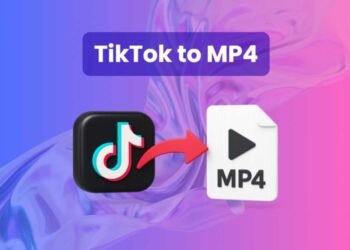Jumping into software development can seem like entering a huge, complicated world with unlimited options. Every decision, from the programming language you pick to the projects you work on, shapes your development and the skills you acquire. Whether you’re a beginner or hoping to solidify your base knowledge, having some key strategies and insights can make the journey smoother and more fulfilling.
Here are some tips for newcomers that can help kick-start a productive and enjoyable journey in software development.
Build Your Confidence
A great way to get into software development is by starting with small projects. Creating a base with simple projects helps you grasp key ideas without getting overwhelmed. Whether it’s making a basic calculator, a to-do list, or a simple game, each project adds to your skills and strengthens your knowledge.
These projects don’t just improve your coding but also your problem-solving skills. As you finish each project, you’ll feel more confident to tackle tougher tasks. Keep in mind that every skilled developer began with basic projects and worked their way up. It’s important to concentrate on learning rather than rushing into advanced topics.
Hire Developers
Learning from seasoned developers can speed up your growth. Hiring or teaming up with remote developers lets you tap into abilities and insights you might not have yet. This is helpful, especially if you’re on a project where guidance would be beneficial or want to observe how experienced professionals organize their work.
Working with remote developers can also introduce you to industry methods and tools like version control and project management systems. Regular touchpoints with more experienced developers or mentors offer practical advice and feedback on your work, helping you improve steadily. If you hire software developers, it can help you prepare for team projects easily.
Focus on One Programming Language
If you’re just starting out, learning one programming language at a time is a good idea. Pick a language that matches your goals. Python is popular because it’s easy to read and flexible, while JavaScript is a must for web work. Focusing on one language helps you get the hang of core programming skills you can use anywhere.
After you get the hang of one language, picking up others will be simpler. Sticking to one language also keeps distractions at bay, allowing you to dig deep into programming ideas. Trying out different projects with that language will strengthen your knowledge and give you a strong base for the future.
Practice Problem-Solving Skills
Writing code isn’t just about typing out commands. It’s mainly focused on figuring out solutions to problems. Practising problem-solving with coding challenges or small, real-world projects makes you a better developer. Start by breaking down problems into smaller steps and solve them individually.
For example, online coding platforms and forums can give you structured problems to tackle, helping you think logically like a programmer. You’ll constantly improve problem-solving, so keep it a regular part of your learning routine. This way of thinking will help when you face more complicated coding tasks.
Keep Your Code Clean
Clear and well-organized code makes your work easier to grasp and helps you get ready for teamwork. Writing clean code means using meaningful names for variables, keeping functions on one task, and adding comments to explain your thinking. As you progress, good coding habits will save you time and make debugging simpler.
Documenting your code is also helpful, especially for future reference or when collaborating with others. Keeping your work tidy, well-commented, and consistent is key to professional growth. Remember, clean code is easier to read, share, and build upon, making it an intelligent practice from the start.
Experiment with Development Tools
In software development, there are many tools to make coding, debugging, and managing projects easier. Trying out different integrated development environments (IDEs), version control systems, and text editors will help you find what suits your style. Knowing how to use these tools can also ease your path into a professional setting.
Pick tools that make your workflow simpler without being too complicated. If you’re just starting, it’s best to begin with essential tools before moving on to more complex ones. Testing different setups will help you discover what works best for you and might boost your productivity. Finding tools that feel right to you is essential in learning how to work efficiently.
Learn Basic Version Control
As a newbie to software development, understanding version control is crucial. This feature can help you manage code, especially as projects become more complex. Learning the basics with tools like Git lets you save your work, keep track of changes, and work easily with others. Even if you work alone, version control helps keep backups and experiment with different code versions without worrying about losing your work.
These systems let you keep different project versions and return to earlier stages if needed. This way of working is essential for team developers and is standard in the industry. As you gain experience, version control will become a key part of your process.
Test and Debug Your Code
Testing and debugging are the best practices for software development. These processes ensure your code works as it should. By testing regularly, you can catch mistakes early. Debugging helps you learn to find and fix problems. This skill is essential because writing software often means revisiting to improve your work.
Start with small tests to check that each part of your code functions properly, then slowly move on to bigger parts. Regular testing is a good habit that prevents mistakes from building up, saving you time and headaches. Solving each problem gives you a better grasp of how your code operates.












